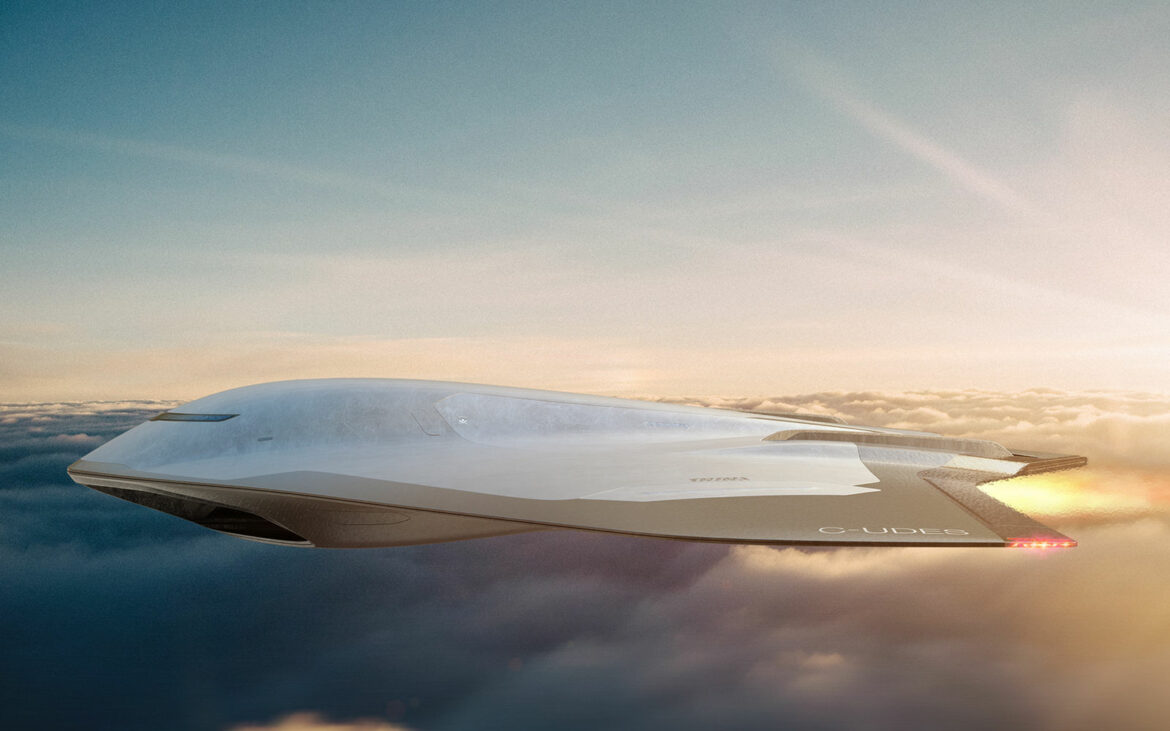A modern long-range wide-body airliner like the Airbus A350 takes 15 hours of non-stop flying to travel from Los Angeles to Sydney. This makes it one of the longest and most tiring airline routes for passengers. But imagine an aircraft that will reduce travel time between the two cities to just 3 hours. Sounds unrealistic, right? After all, the jet should be capable of flying multiple times the speed of sound to achieve that feat. However, the grandson of aviation giant Bombardier, Charles Bombardier, believes the technology to build such an ambitious aircraft will be available in the foreseeable future. A mechanical engineer by education, Charles leads a nonprofit organization named Imaginactive, which has created multitudes of highly-ambitious, world-changing concepts over the last few years. The Paradoxal hypersonic jet concept is one of them, and it is designed to travel at Mach 24 (nearly 16,000 mph). At this speed, it can fly out of JFK and land at Heathrow, London, covering a distance of 3,450 miles in 11 minutes. Yes, you read that right.
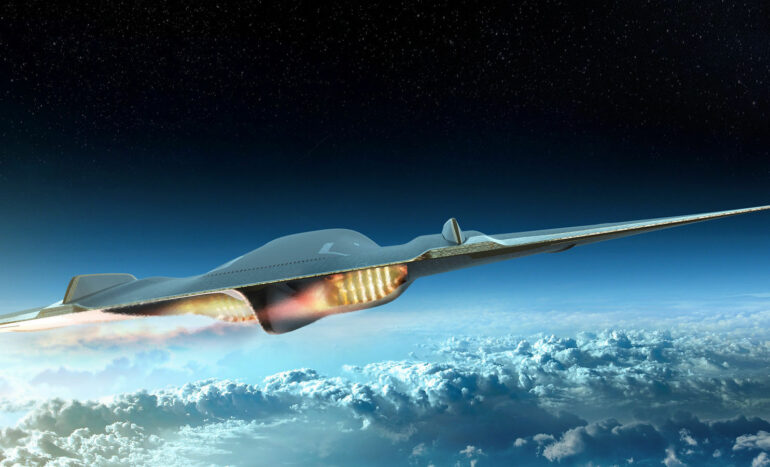
According to its designer, Juan Garcia Mansilla, the development of the Paradoxal concept involved numerous scientists and engineers, including some professionals from NASA. You won’t be wrong if you think the conceptual hypersonic aircraft looks like a futuristic version of the B-2 stealth bomber. Both of them are strikingly similar to the peregrine falcon, the world’s fastest bird, during its dive to catch its prey.
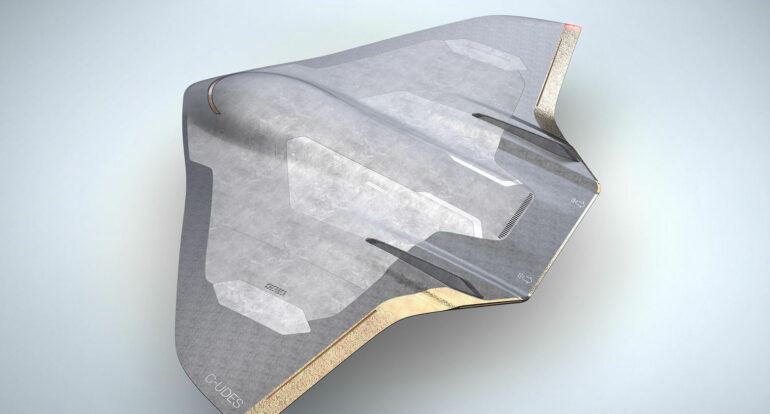
The Paradoxal looks nothing like commercial passenger jets that have long wings and a tube-like fuselage. Instead, the hypersonic jet has a flat fuselage with integrated delta wings. While the designer of the aircraft and Imaginactive have not revealed the dimensions of the jet or the details of the cabin, we believe the Paradoxal will be big enough to be operated as a small jet with limited passenger capacity. Maybe it was conceived as an ultra-fast business jet; we’re not sure.
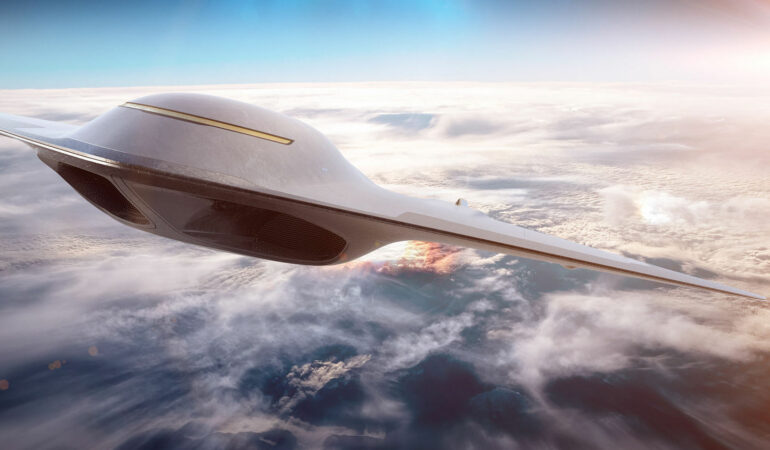
The Paradoxal is powered by a dual-engine system called the R4E, which delivers a two-stage journey. The twin rim-rotor rotary ramjet engines promise to “improve power density and reduce complexity compared to conventional gas turbines.” In the first stage, the hypersonic aircraft can accelerate to Mach 3.0 and climb to 60,000 feet using air-breathing engines. This is when the second stage kicks in, with liquid oxygen introduced into the propulsion system, which turns it into a rocket engine. This will propel the aircraft to Mach 5 and beyond, taking it to the edge of space. The sub-orbital parabolic trajectory of the jet will offer a one-of-a-kind experience to its passengers, according to its designer.
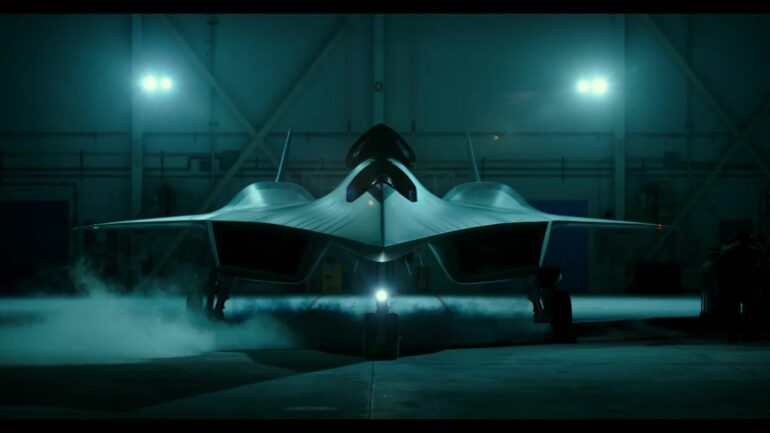
The Paradoxal hypersonic aircraft features NASA’s Long Penetration Mode (LPM). “It involves injecting compressed air along the leading edge of all the aircraft (hence its shape, with one long continuous edge) and thus cooling its surfaces.” The aircraft also gets retractable fins to mitigate tremendous heat and friction created at Mach 24. To put that number into context, the Concorde had a maximum cruising speed of Mach 2.04 (1,350 mph). The hypersonic military jet Tom Cruise flew in the movie Top Gun: Maverick had a top speed of Mach 10+. “I think the technology can be developed rapidly, in less than 50 years,” says Bombardier. “The true questions become whether anyone is willing to invest capital in such a program—and do we really need to go that fast?”
Note – The Concorde had a top speed of 1,354mph and could fly from New York to London in 2 hours and 52 minutes.
